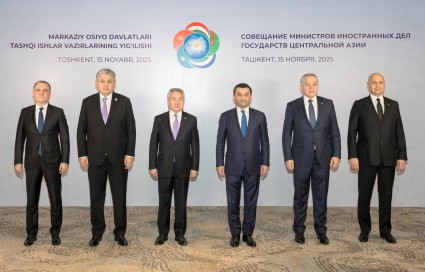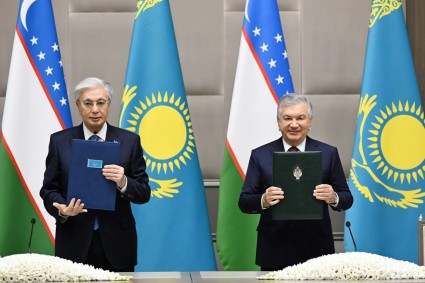New bill to regulate the holding of weddings, funerals, family celebrations and other events is to be developed In Uzbekistan. This is envisaged by the April 21 presidential decree.
It is planned to submit a draft joint resolution of the two chambers regulatinп the said events иy August. The document is being developed as part of the implementation of the directives announced on March 5 at an expanded meeting of the National Anti-Corruption Council, headed by Senate Chairperson Tanzila Narbaeva.
The project is planned to provide for new mechanisms aimed at developing a culture of thrift among young people.
The parliament, headed by the speakers Tanzila Narbaeva and Nuriddin Ismoilov, will be in charge of its development, with the participation of the Ministry of Culture (Ozodbek Nazarbekov), the Committee on Family and Women's Affairs (Mukarram Nurmatova), and the Committee on Religious Affairs (Sodik Toshboyev).
In addition, a set of measures will be implemented to prevent wastefulness during weddings, funerals, ceremonies and other family events.
Among them are the creation and distribution of social videos to prevent excessive luxury during family events, a large-scale outreach and awareness campaign among the public, the development and distribution of short films, social advertisements, television programs, radio programs, podcasts and articles highlighting the negative consequences of wastefulness.
In the past, Uzbekistan has repeatedly attempted to regulate the holding of weddings and other events. President Shavkat Mirziyoyev has repeatedly spoken about the need to regulate family events and prevent wastefulness and pomposity. In August 2017, he said: “We must admit that unnecessary expenses associated with weddings and other events have a negative impact not only on the economic situation of thousands and thousands of families, but also on their entire lives.”
He then instructed the government to develop a draft resolution on regulating the holding of family rituals within a month.
In March 2018, a draft of the relevant document was published for discussion, but it was not adopted. The Senate, having studied the opinion of the public in all regions, decided not to impose restrictions on holding weddings and other family events and rituals.
In 2020, the parliament approved a procedure according to which weddings and other family celebrations (except funerals) should be held only during one day from 06:00 to 23:00. The number of guests shall be limited: up to 200 people at the celebration and up to 250 at the pilaf treat. In the case of a double wedding, up to 250 and 300 guests are allowed, respectively. Holding events after 23:00 is prohibited.
Organizers are required to notify local government bodies in advance, and the use of motor vehicles is limited to three cars. Official contracts must be entered into with artists and owners of wedding halls. Excesses, demonstrative spending and rituals that contradict traditions and morals are not allowed.
Oversight over compliance with the rules shall be assigned to mayor offices, police, the prosecutor's office and tax authorities. The chairmen of mahallas and prevention inspectors are personally responsible for the restraint of events.
However, in practice, these requirements are often not observed and not monitored.
In March 2020, liability was introduced for violating the procedure for holding weddings and other family events. According to Article 192-1 of the Administrative Responsibility Code, failure by a person conducting weddings, family celebrations, ceremonies and rituals to comply with the requirements for the procedure for holding these events entails the imposition of a fine on individuals in the amount of 10 basic calculation units (3.75 million soums), and for officials and owners of establishments - 30 BRV (11.25 million soums), in case of repeated violation - 50 BRV (18.75 million soums).
However, the number of cases considered under this article during all this time was insignificant. For example, according to court decisions, only 4 such cases have been considered year-to-date, 9 for the whole of 2024, 4 for 2023, not a single case was considered for 2022, 15 for 2021, and 0 for 2020.














